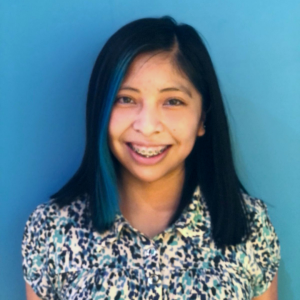Dear Blog:
Today Thursday, March 16, I sit in front of the laptop not knowing what to write. I have never been a very meticulous person as to what I want to say, I have always preferred a certain spontaneity, creativity and above all feeling to completely cover the blank page.
A few weeks after finishing with the lab, I have realized many things, one of them is that academic research does not have to be a solitary and individual work. That’s right, my 15-year-old self would not believe it, but today I can confirm that group work in research can be one of the most rewarding experiences one can have. By this I do not mean that everything goes as one wishes, in a group there are disagreements, contrary opinions, silences and setbacks; the simple fact of coordinating schedules to meet and discuss certain issues is a lot of work. However, in a team you find the warm embrace you need when something doesn’t go right. Seeing my colleagues keep trying motivates me to keep going (insert heart here).
I started with academic research when I was 15 years old, I was a novice, although the love I had for reading and history made that a year later I finished my first extensive monograph on the role of the “Chichas newspapers” during the second government of Alberto Fujimori, which obtained a special recognition. In those years I knew that research would be part of my daily life and I could not wait for what the future would bring. When I entered the university, everything went better. Having access to an immense amount of books made me think it was paradise, and I am not exaggerating, the happiness I felt was equal to that of a child in a candy store.
My first university papers were a challenge, the schedule with strictly detailed deadlines was a nightmare for someone who just wanted to find out a little more. I was never satisfied with what I read, I wanted to know what was beyond what an author proposed, searching for sources was always one of my favorite stages in research; however, all my energy was reduced knowing that I only had a few days to do it. That is why one of my biggest battles will always be against schedules and their strict dynamics, and it is not that they are bad, in fact, it is a very useful tool when it comes to move forward with your work. What I mean is that each teacher or other agent imposing times without considering the rhythm of each student and/or researcher does not allow them to develop their full potential in the academic field.
I mention this because another of the things that I like most about the laboratory is that each of us has control of our own time. Obviously there are commitments to be met, but they always look after the comfort of the participant. Something, supposedly, as simple as time can make a big difference: it is either your ally or a permanent stress factor, even more so when you do not define the topic of your research. In particular, my team and I began with the idea of investigating the 16 Personalities Test and its relationship with the choice of students of the Faculty of Arts and Communication Sciences of the PUCP for their current major; however, being an ambiguous and very generic topic, we had to reformulate it to one that focused on the processes of interaction that occurred in certain virtual communities around the test.
After several weeks and changes, the topic of our research remained as “The process of the construction of narratives that circulated in the virtual communities @mbti.memes.en.español on Instagram and Another MBTI Group on Facebook during the months of January and February 2022”; however, it is still not the definitive one, since certain concepts such as “narratives” need to be clarified and this makes us very uneasy. What for some the process of constructing the theme could be simple, is not for us. Going back, correcting and building the consistency matrix more than once leaves one exhausted and even more disappointed with oneself. Although as a team we go at each other’s pace, the duties outside the lab do not allow us to make much progress, and emotional fatigue is also another reason why we cannot advance as we would like to.
Every researcher as a person experiences many emotions and feelings. During these months I have realized that a single observation to your work can be a factor of confusion and sadness; likewise, not being able to advance more than you would like is also a cause of anxiety and worry. One always asks oneself: “what should I prioritize or where should I start?”. In this process where one is constantly questioning what one should do in certain circumstances, active listening and moral support are a great means of problem solving. For example, sometimes I have been the one who motivates my friends, the one who always points out the positive issues and all that we can achieve if we overcome those obstacles that do not allow us to move forward, but sometimes I am the one who receives encouragement from my teammates and other people, including the lab coordinators, who very kindly listen to you and tell you that everything can be better.
I know I have written a lot today, but I hope that as time goes by I will be able to remember everything I was feeling at this time. Many things don’t go as you plan, but therein lies the magic of the unknown. I did not know what was going to happen when I decided to enroll in the lab, I was afraid and anxious, but today I reaffirm my decision. I am aware that with my team we have not yet reached a safe harbor, we are still navigating the rough sea, but I hope that when the sun sets we will have succeeded, because “no calm sea has ever made a sailor an expert”.





